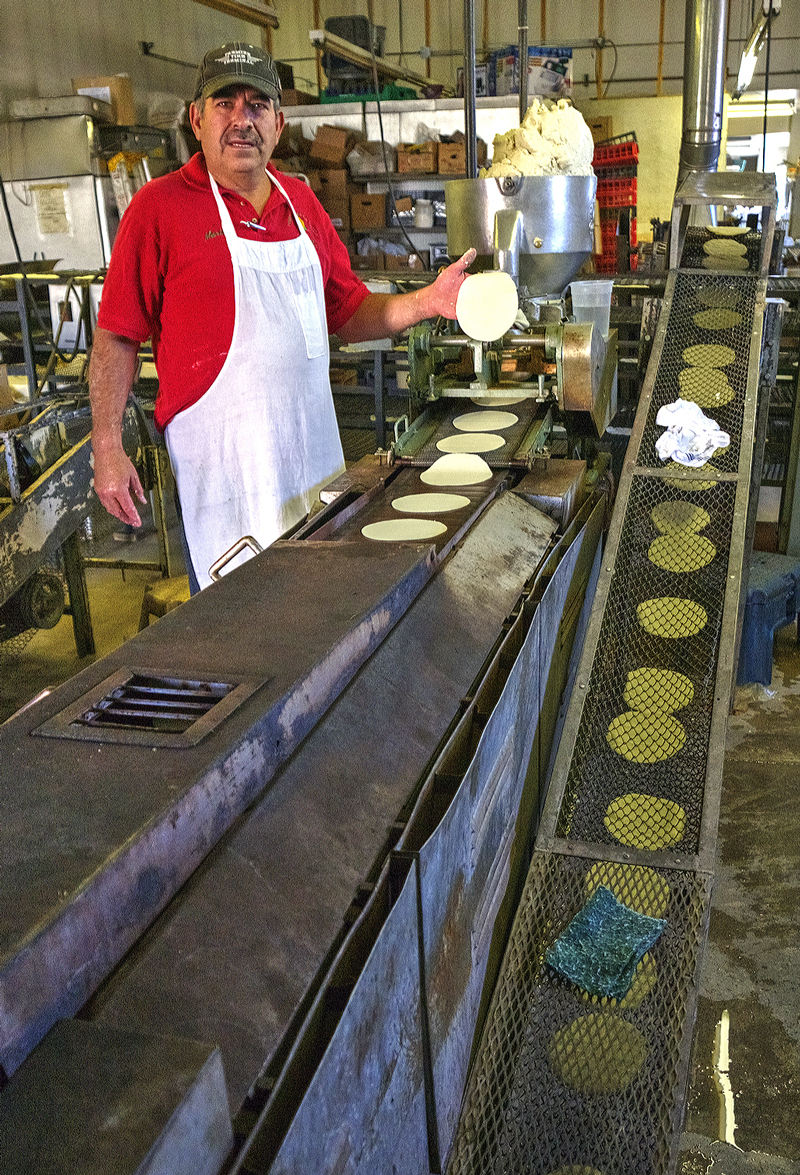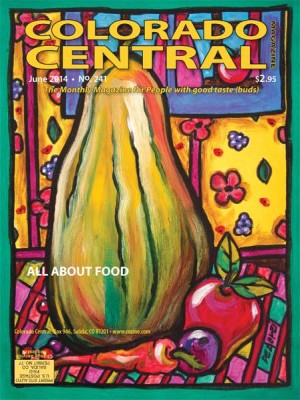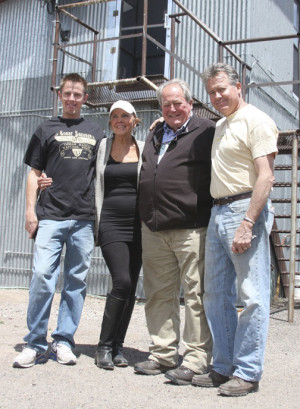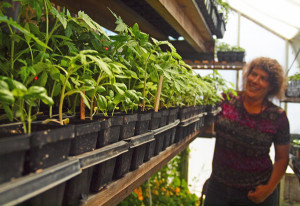By John McEvoy
An unobstructed panorama of the San Luis Valley stretches out around from the aptly named small town of Center, Colorado. Once bustling with migrant workers arriving in the spring to tend the surrounding potato and crop fields, Center now sits alone in the middle of the Valley, waiting for the future to find it again.
A testament to the once-busy past is the rusting stoplight, no longer functional, that stands unused in the middle of downtown. It is now just a tired sentinel that juts up out of the pavement, conjuring up scenes of times past when the many automobiles and trucks passing through needed a traffic light.
Half a block away, across from the town hall, is Tortilleria La Unica and Carniceria Y Abarotes, which, translated means: one and only meat and groceries.
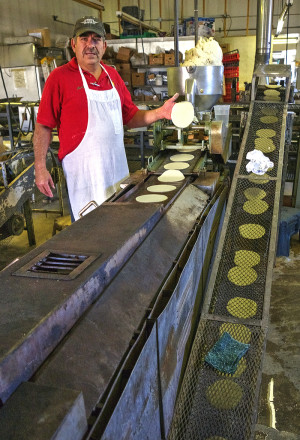
Owner Martin Palma moved from Camargo, Chihuahua, Mexico to Center and opened his business nearly 15 years ago when there was a much greater demand for his all-natural, no-preservative tortillas. Palma is still cranking out what is a necessary staple for most Hispanic families, although not as many as before.
“It used to be that 100 laborers would be needed on the farm to pick the produce,” said Palma. “Now it is only three because the machinery is so efficient.”
Distributed widely across the Valley, the shelf life of Palma’s corn and flour tortillas is 10 days. Both the corn and flour tortillas are made simply with wheat flour or corn masa and water; no preservatives are added, and they must be refrigerated. These tortillas will not be found on a warm, room temperature shelf along with the competition.
Palma delivers all the tortillas himself to a variety of retail stores around the Valley: City Market in Alamosa, Ploughboy in Salida, Jack’s Markets in Del Norte and Monte Vista, Fort Market in Blanca and of course, they are available in his Carniceria in Center.
“People come in from all over the area,” said Palma. “People who are on vacation also hear about us and come in while they are travelling.”
Palma and two of his employees make the tortillas on Mondays and Tuesdays. After mixing the proper amount of water and flour in a special sink that churns the mixture into consistent dough, they place the dough into a hopper that pushes it through an auger system into equal-sized balls, which are then flattened by the machine into perfectly shaped tortillas.
The machine drops the raw, flattened tortillas onto a conveyor belt that brings them through a three-level natural gas-fired oven, where they are evenly broiled. They then continue along on a chain screen conveyor process that Palma developed himself, passing over blowing fans to cool them.
“We can make 200 pounds in an hour,” said Palma.
The tortillas are dropped at the end of the belt into the hands of a worker who gathers and stacks them evenly. Another worker weighs and packages them for sale after they have cooled. All the machinery used in the manufacturing comes from Mexico, and Palma has learned to do any necessary repair work on the machines himself. He also has an older machine nearby that is no longer in use just for spare parts.
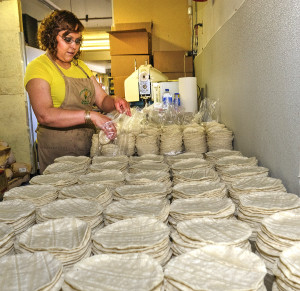
The Carniceria also sells specialty meats and cheeses, including Mennonite cheese from Denver. A variety of every kind of Hispanic food, for any type of meal, is also available, as are piñatas, toys and other dry goods. Exploring this store is like going into a shop in old Mexico.
Palma is quite a businessman, as he also owns a combination gas station and tire store in town. Between the Carniceria and gas station, he employs seven people.
Palma said he has not tried to expand his business because the work he has now is enough. He is glad he does not have to work too hard and can spend time with his wife Lisa and his family.
“My happiness is my family,” said Palma.
Tortilleria La Unica and Carniceria Y Abarotes in Center. 719-754-3772
John McEvoy is a curious journalist in Del Norte who explores and writes about the inside and outside of Life and Its many mysteries. Why? Why not?

